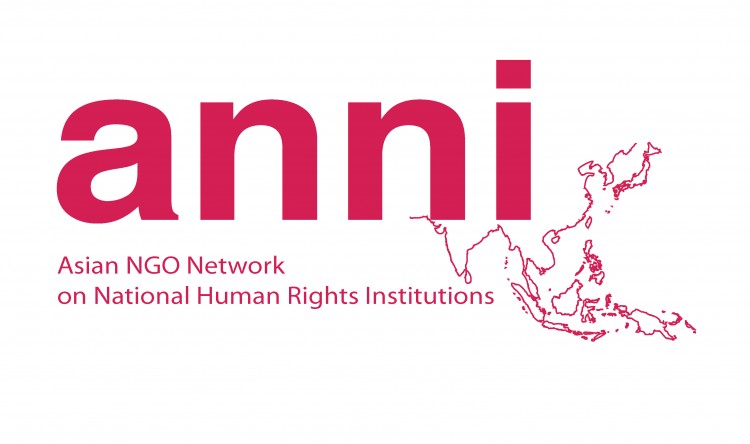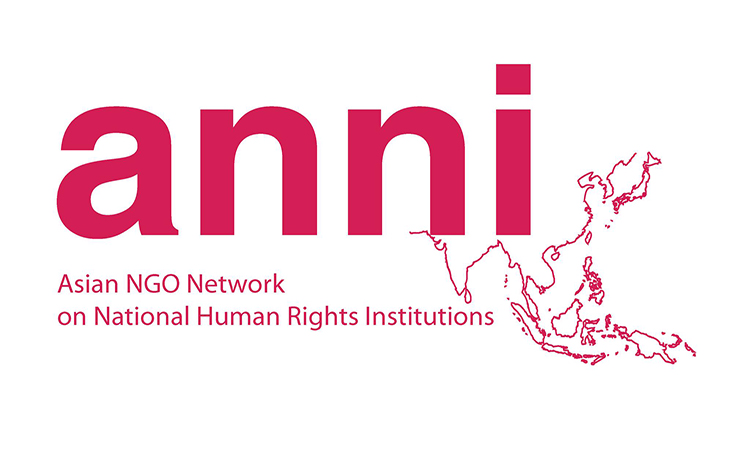 (Bangkok, 6 September 2018) –The Asian NGO Network on National Human Rights Institutions (ANNI) welcomes the nomination of seven new candidates for the National Human Rights Commission of Thailand (NHRCT).The current selection process is more inclusive and transparent that indicates an effort in complying with the Paris Principles, a set of international standards which frame and guide the work of National Human Rights Institutions. The selection and appointment of NHRCT commissioners has been a great concern for civil society and the Global Alliance of National Human Rights Institutions due to the lack of a participatory, transparent and merit-based selection process. The previous selection was heavily flawed as it was secretive with no representation from civil society, and resulted in nominations of only one candidate with a proven track record on human rights among seven candidates.[1]
(Bangkok, 6 September 2018) –The Asian NGO Network on National Human Rights Institutions (ANNI) welcomes the nomination of seven new candidates for the National Human Rights Commission of Thailand (NHRCT).The current selection process is more inclusive and transparent that indicates an effort in complying with the Paris Principles, a set of international standards which frame and guide the work of National Human Rights Institutions. The selection and appointment of NHRCT commissioners has been a great concern for civil society and the Global Alliance of National Human Rights Institutions due to the lack of a participatory, transparent and merit-based selection process. The previous selection was heavily flawed as it was secretive with no representation from civil society, and resulted in nominations of only one candidate with a proven track record on human rights among seven candidates.[1]
In addition to the selection process, another positive development that ANNI acknowledges is the recognition of candidates’ competencies and experiences by the selection committee. Five out of seven candidates have expertise in human rights and are associated with the civil society organisations. ANNI has also noted that there is an attempt of ensuring gender balance, as three out of seven candidates are women.
However, the current composition of the selection committee is problematic which may not fulfill the requirement in the Organic Law on the National Human Rights Commission B.E. 2560 (2017). The presence of the President of the National Legislative Assembly in the selection committee could affect the independence and neutrality of the selection process, as the final approval of NHRCT’s candidates is determined by the Assembly.
The selection of the Director General of Rights and Liberties Protection Department of the Ministry of Justice as one of the candidates is also concerning due to her controversial position on human rights. In the case of the arrest of the protestors during the fourth anniversary of military rule, she said in retaliation that ‘the Government does not hinder the freedom of expressions, but it has to be under the law, and everyone has a different role.’[2]
Therefore, ANNI calls on the NHRCT to disclose the process and reasoning of appointing the candidates to ensure the transparency of the process. It should be noted that to say that candidates fit into the criteria required in the Organic Law is not sufficient.
It is also worth mentioning that the 2017 Organic Law on the National Human Rights Commission states that those serving as government officials have to resign once being appointed by the National Legislative Assembly to ensure National Human Rights Commission’s independence from the Government. It is central to the Paris Principles governing the composition and operation of National Human Rights Institutions.
After the candidates have been nominated by the selection committee, the next step is for the National Legislative Assembly to endorse the candidates by at least50 per cent of the Assembly members.[3] Today the Assembly is hosting an urgent meeting to discuss the qualifications of candidates chosen by the selection committee. The Assembly should carefully examine the proven track record of the candidates and not to endorse those with controversial positions or contradicting relevant laws. As the selection process of the NHRCT commissioners enters into a critical step, ANNI calls upon the Assembly to uphold the commitments based on the international standards in securing NHRC’s effectiveness and independence through a robust and transparent appointment process.
About the Asian NGOs Network on National Human Rights Institutions (ANNI):
The Asian NGOs Network on National Human Rights Institutions (ANNI) was established in December 2006. It is a network of Asian non-governmental organisations (NGOs) and human rights defenders that work on issues related to National Human Rights Institutions (NHRIs). ANNI has members from all over Asia. Currently it has 33 member organisations from 21 countries or territories. ANNI focuses on strengthening the work and functioning of Asian NHRIs to better promote and protect human rights as well as to advocate for improved compliance of Asian NHRIs with international standards, including the Paris Principles and General Observations of the Sub-Committee on Accreditation (SCA) of the Global Alliance of NHRIs (GANHRI).
For further information, please contact:
– [email protected], ANNI’s Secretariat
[1]https://forum-asia.org/?p=19267
[2]https://prachatai.com/journal/2018/08/78379 (in Thai)
[3]Section 14 of NHRCT Organic Law B.E.2560
***
For a PDF version of this press-release, click here



